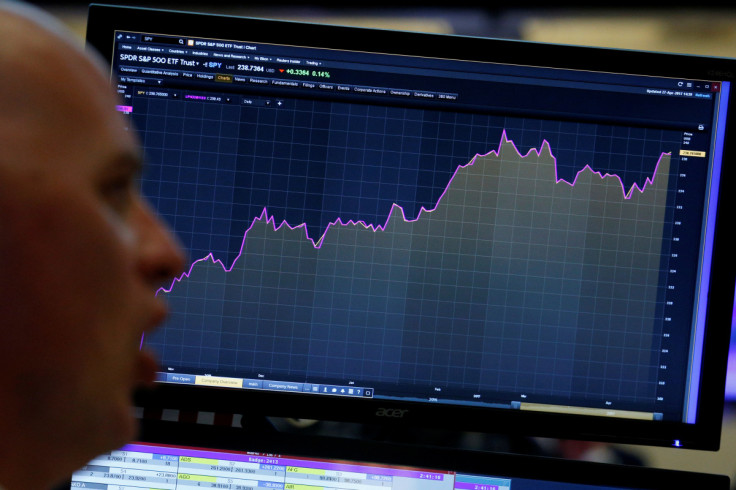S&P 500 Companies Are Paying The Price Of The New Global Divide

U.S. corporate giants with significant overseas presence are beginning to see a shortfall in earnings and revenues from the new global divide between a democratic and an authoritarian world. It's a trend that portfolio managers should pay close attention to as they try to diversify funds across geographical regions.
According to a recent FactSet Geographic Revenue Exposure report, S&P 500 companies with more than 50% overseas sales have suffered a revenue and earnings shortfall, underperforming those with less than 50% overseas sales presence.
"The blended (combines actual results for companies that have reported and estimated results for companies that have yet to report) earnings decline for the S&P 500 for Q2 2023 is -7.3%," John Butters, vice president and senior earnings analyst at FactSet, said. "For companies that generate more than 50% of sales inside the U.S., the blended earnings growth rate is 0.4%. For companies that generate more than 50% of sales outside the U.S., the blended earnings decline is -20.8%.
The comparison between the two company groups displays a similar pattern for revenue growth.
"For companies that generate more than 50% of sales inside the U.S., the blended revenue growth rate is 2.2%," Butters said. "For companies that generate more than 50% of sales outside the U.S., the blended revenue decline is -5.8%.
The second-quarter earnings and revenue shortfall of U.S. corporate giants follows a similar situation in the first quarter, confirming that globalization is turning from a tailwind to a headwind.
Thanks to a "new" global divide between democratic nations that includes the U.S. and its European and Asia-Pacific allies and authoritarian regimes like Russia and China on the other.
The new global divide is about a rules-based international order of multilateralism vs. an intimidation and coercion-based order of regionalism and localism.
As has been the case with the old global divide between capitalism and communism, the new world division fuels geopolitical tensions and has slowed international trade. For instance, a couple of months ago, Germany, the EU's largest economy, reported an annual decline of 11.3% in its exports to China over the previous four months of 2023.
Moreover, it helped push the German economy closer to a recession.
The decline in trade between China and Germany is further confirmed by Chinese data, which showed that during the first four months of the year, China's imports from Germany slid at an annual rate of 3.9% in the U.S. dollar terms. In addition, bilateral trade dropped by 6.2%.
The slowing down of global trade hurts corporate giants that derive a significant chunk of their sales from overseas markets' performance in two ways. First, it limits the search for new business opportunities, allowing companies to expand their operations' scale and scope. Second, it undercuts the efficiencies associated with lower transaction costs and better sourcing, which help companies cut costs.
That's further confirmed by Oxford Economics' third quarter Global Risk Survey, which showed that global tensions relating to Taiwan, Korea and Russia pose the most significant risk for corporate giants in the near and long term.
Already, these tensions have prompted the U.S. to impose restrictions on exports of advanced semiconductors, computer gear and software to China.
An excellent example of a company hurt by U.S.-China tensions over technology trade is Qualcomm. Last week, the U.S. tech giant, which derives nearly 50% of its revenues from China, reported a shortfall in the sale of handset units in the world's second-largest economy.
© Copyright IBTimes 2025. All rights reserved.






















